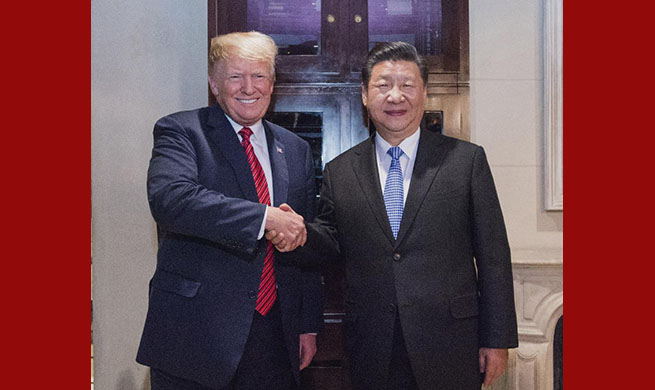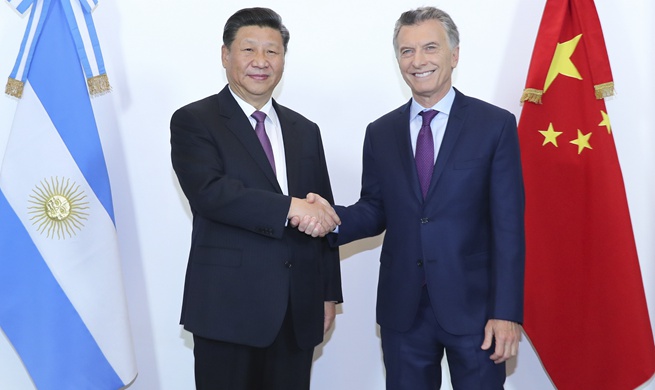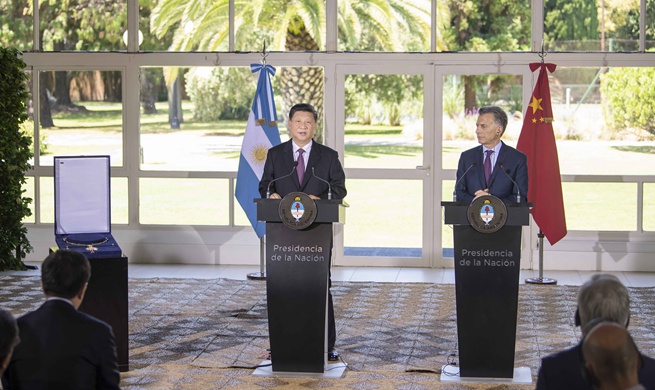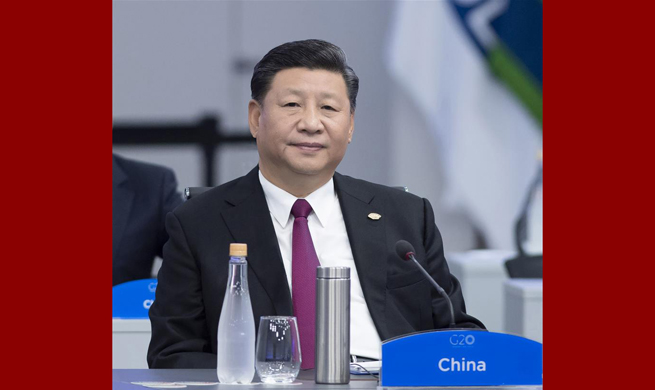CANBERRA, Dec. 3 (Xinhua) -- Australia's leading business and energy groups have joined force to urge the government to abandon its proposed signature energy policy.
The Australian Energy Council (AEC), Australian Industry Group (AIG) and Business Council of Australia (BCA) have warned against the government's proposed "big stick" approach to energy legislation, saying it will "specifically discourage badly needed investment in the energy sector.
Under the policy, which was designed by Prime Minister Scott Morrison and Energy Minister Angus Taylor, Australia's Treasurer would have the power to break up Australia's energy companies if they were found to have engaged in price gouging.
"The signatories to this statement are robustly opposed to the creation of unilateral divestment powers for the treasurer. Such discretionary and quasi-judicial powers represent deep and genuine sovereign risk," the lobby groups wrote in an open letter to the government on Monday.
"They are inconsistent with best practice for a modern economy, such as Australia's, and were specifically considered and rejected by the Australian Competition and Consumer Commission (ACCC).
"If enacted, these powers would cast a pall over investment in all sectors of the Australian economy and threaten the economic attractiveness of a country highly reliant on foreign investment."
They said that the proposed law would set "a dangerous precedent."
"Driving down prices for any market requires investment. Investors require clear, stable and predictable rules so that they have the necessary confidence to make those investment decisions," the group said.
"This legislation will only lead to increased investment uncertainty and prices."
Energy policy has been a major issue for the governing Liberal National Party (LNP) in this term of government.
Former PM Malcolm Turnbull was deposed by the party's conservative wing in August over his plan to embed an emissions reduction target within his own signature energy policy, the National Energy Guarantee (NEG).
Responding to the open letter, Taylor said on Monday that the "big stick" was necessary to "stop the bad behavior" of energy companies.
"It is no wonder the big energy companies are pushing back against the big stick legislation we are introducing to parliament," he said on Monday.
"They have been taking record profits from the wallets of hardworking Australians for years, and they don't want it to end."
"We hope we won't have to use them (the powers) but believe they're necessary to stop the bad behavior.
"It squarely focuses on pricing and supply, making sure there isn't price gouging and withdrawing of supply to drive up prices."
Treasurer Josh Frydenberg, the man who would possess the new powers if the laws are passed by the parliament, said they would only be used in a way that benefits consumers.
The opposition Australian Labor Party (ALP) has ruled out support for the policy, making it unlikely that it will be passed through parliament.
ALP leader Bill Shorten in November announced his own signature energy policy, a 15 billion Australian dollar (11.03 billion U.S. dollar) program that included ambitious emissions and renewable energy targets.
Under the ALP plan, Australia would be committed to a 45-percent emissions reduction targets from 2005 levels and 50-percent renewable energy target by 2030.













